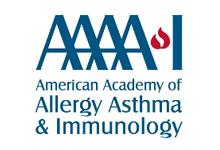 Patients with asthma are typically divided into two broad groups, those with intermittent or infrequent symptoms who use medications only when they have symptoms and those with persistent symptoms that are treated with daily preventive medications. Most patients with persistent asthma can achieve control of their asthma with inhaled corticosteroid (ICS) medications often used in combination with long-acting bronchodilators (LABA) or leukotriene pathway inhibitors. As many as 5-10% of patients with persistent asthma are not able to adequately control their symptoms with combination therapy, leading to more frequent asthma flares, ER visits, and hospitalizations. Patients with uncontrolled asthma require more frequent treatment with oral or injectable steroids which can have numerous undesirable long-term side effects.
Patients with asthma are typically divided into two broad groups, those with intermittent or infrequent symptoms who use medications only when they have symptoms and those with persistent symptoms that are treated with daily preventive medications. Most patients with persistent asthma can achieve control of their asthma with inhaled corticosteroid (ICS) medications often used in combination with long-acting bronchodilators (LABA) or leukotriene pathway inhibitors. As many as 5-10% of patients with persistent asthma are not able to adequately control their symptoms with combination therapy, leading to more frequent asthma flares, ER visits, and hospitalizations. Patients with uncontrolled asthma require more frequent treatment with oral or injectable steroids which can have numerous undesirable long-term side effects.
What are biologics?
Biologic therapies are products derived from living organisms and can include vaccines, blood products and genetically engineered proteins. The biologic agents currently approved for the treatment of severe asthma in the United States are all genetically engineered proteins that target parts of the immune
system that can cause inflammation in the airways of the lungs, which is characteristic of asthma. These agents are laboratory-produced antibodies, that are called monoclonal antibodies. These antibodies are usually created by injecting a mouse with a human protein that is implicated in disease. The mouse immune system then begins to make antibodies that target the human protein. The mouse antibodies are “humanized” to make them less likely to cause an allergic reaction when given to humans. These humanized antibodies can be mass produced in laboratory cell cultures.
There are currently 4 FDA approved biologics for patients with severe asthma
Xolair (omalizumab) was approved by the FDA in 2003 for the treatment of children and adults with allergic asthma. It is a monoclonal antibody that specifically targets allergic antibodies (IgE). Xolair works by blocking allergic antibodies and preventing the release of chemicals that can trigger allergic reactions, including asthma attacks. It can be an effective treatment for asthma patients who have allergies to dust mites or other perennial allergens including animals. Asthma patients interested in Xolair need to undergo a simple skin and/or blood allergy test to find out if this is an appropriate treatment option.
Nucala (mepolizumab), Fasenra (benralizumab), and Cinqair (reslizumab) are three newer medications approved by the FDA in the last few years for children and adults with eosinophilic asthma. Eosinophils are inflammatory cells that are associated with lung inflammation in asthma. These three drugs either target interleukin 5 (IL-5), which activates eosinophils, or the interleukin 5 receptor (IL-5R). These medications are potential options for patients who have asthma and elevated numbers of eosinophils in their blood. Asthma patients interested in these medications must undergo a simple blood test to find out if they have elevated eosinophils.
All four of these asthma medications may be administered in a doctor’s office, hospital or another appropriately equipped medical facility. They are either given as an injection or intravenously depending on the biologic medication prescribed. Depending on the therapy chosen and the individual patient’s test results, frequency of treatment can be every two weeks to once every two months.
What’s the next step?
If you or a family member have asthma and would like to find out more about these treatment options, our board-certified allergists at North Texas Allergy and Asthma Center can help! Do not hesitate to contact us.
SAMUEL FOSTER, MD
Board Certified Allergist







